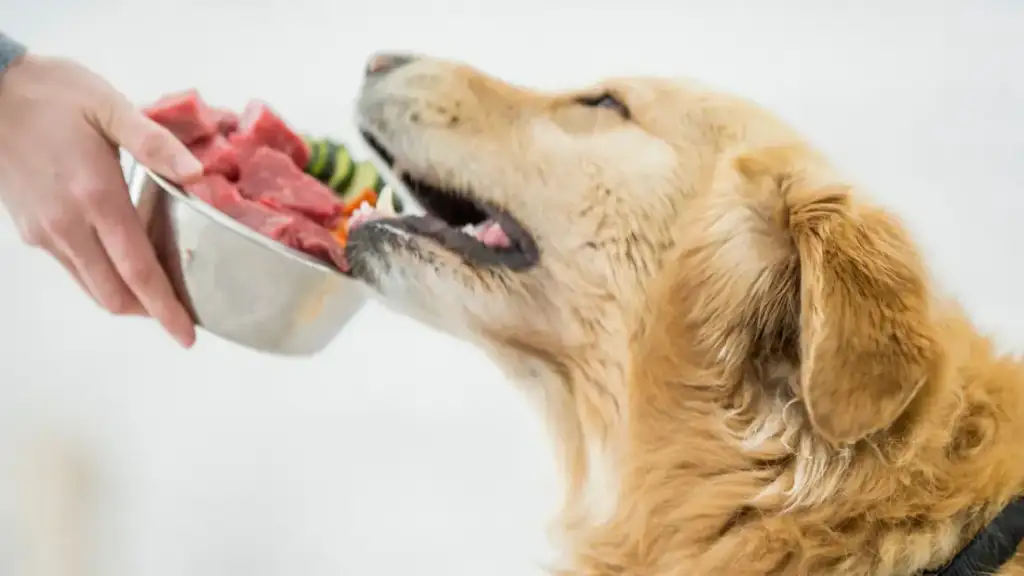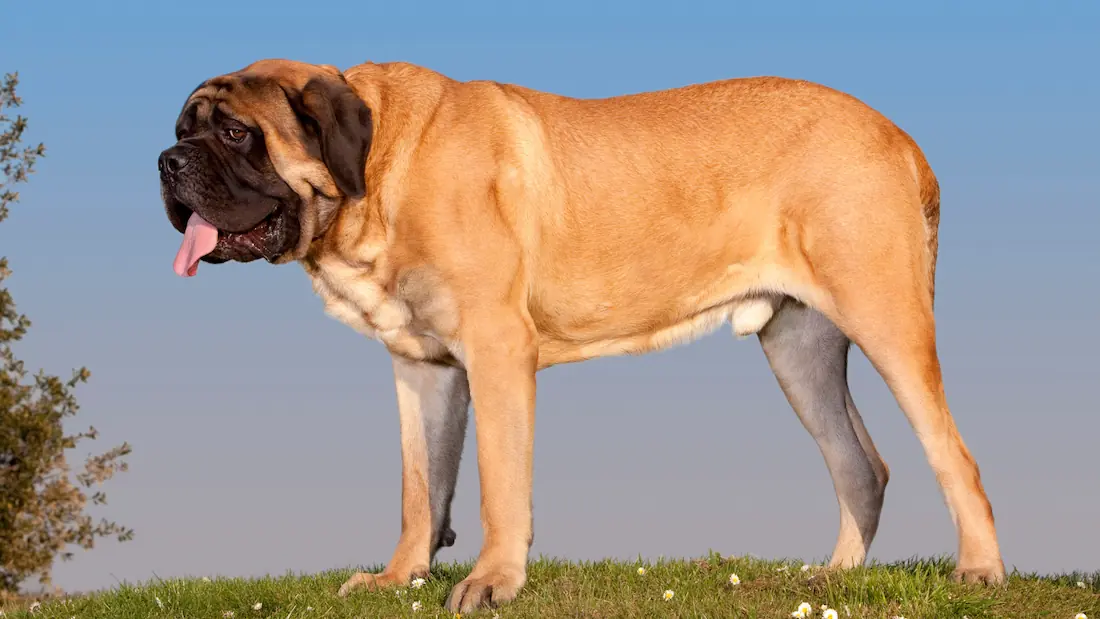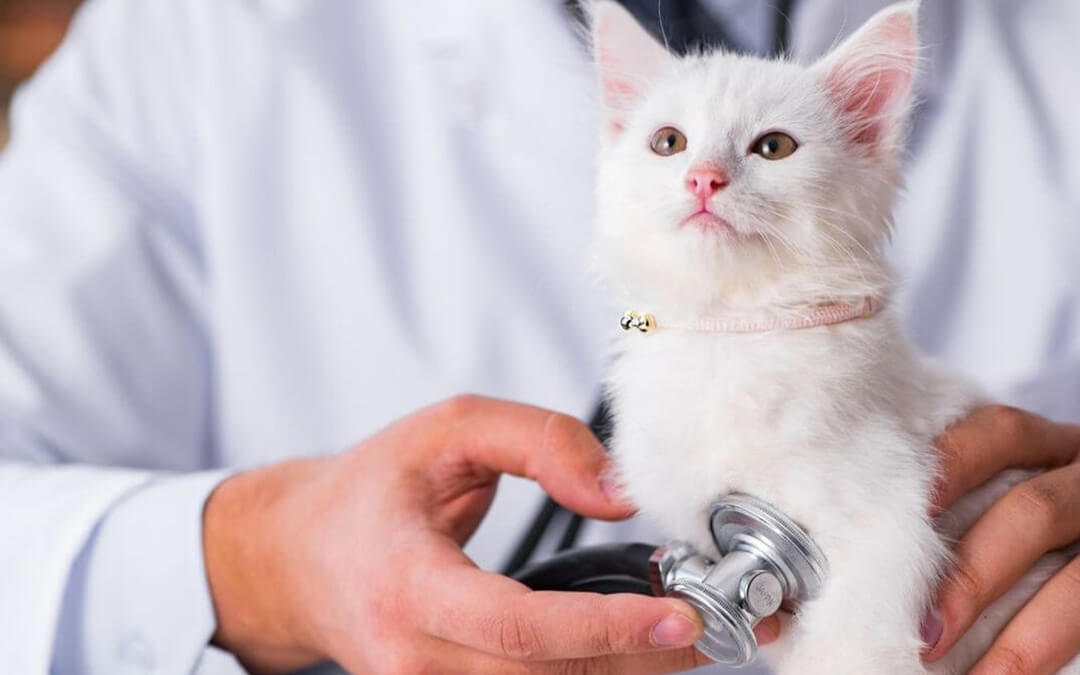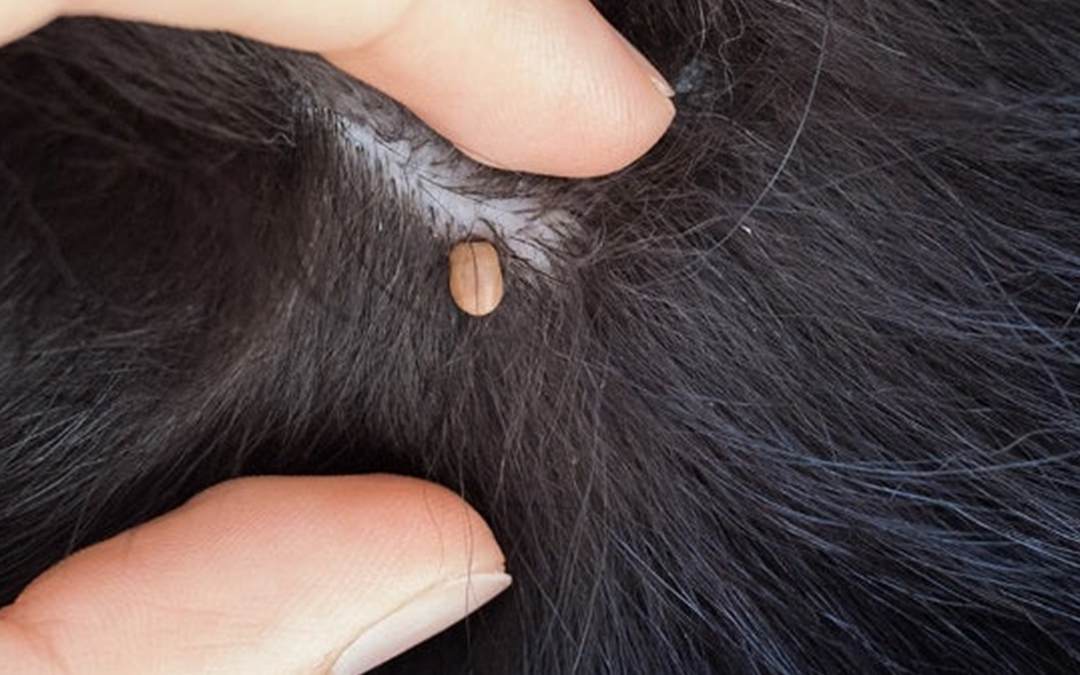If you share your life (and your couch) with a large or giant breed dog, you already know they have big personalities—and big appetites to match. But when it comes to their diet, bigger doesn’t mean you can simply feed your big guy more of the same thing you’d give a smaller dog.
Large breed dogs have unique nutritional needs to help them grow at a healthy pace, maintain a healthy weight, and keep their joints strong for years to come.
At ModernVet, we see a lot of big pups—everything from lively Labradors to graceful Greyhounds—and we know how important it is to choose the right diet to meet your pet’s needs. We’ll break down what makes large breed dog food different, what nutrients you should look for, and the best dog food brands for large dogs.
Do Large Breed Dogs Need Special Food?
In short, yes. Large and giant breed dogs have significantly different growth patterns and metabolisms compared to smaller dogs. Puppies of large breeds grow more slowly but for a longer period, and their bones, joints, and muscles need carefully balanced nutrition during those early months. Adult large breed dogs carry more weight on their frames, which can put extra stress on their hips, knees, and elbows.
Here’s why special formulas matter:
- Controlled growth for puppies: Large breed puppy formulas have just the right balance of calcium and phosphorus to support bone development without causing them to grow too quickly (which can lead to joint issues later).
- Joint health support: Adult large breed food often includes glucosamine and chondroitin to help protect cartilage.
- Healthy weight management: Larger dogs are more prone to obesity, which can strain their joints and heart. The right food can help maintain a healthy weight while still meeting their energy needs.
The bottom line—choosing a diet designed for your dog’s breed size is an investment in their long-term overall well being.
Nutrients to Look For In Large Breed Dog Food
When you shop for large breed dog food—whether it’s dry food or wet dog food—check the label for these key nutrients and features:
- High-quality protein for muscle maintenance.
- Balanced calories to prevent weight gain while keeping your dog active.
- Glucosamine and chondroitin for joint support.
- Omega-3 fatty acids for reduced inflammation and a shiny coat.
- Digestive support ingredients like probiotics or fiber for sensitive stomachs.
- Life stage–appropriate formulas—puppies, adult dogs, and seniors all have different needs.
Glucosamine & Chondroitin
You’ve probably seen glucosamine and chondroitin advertised as must-have ingredients for joint health in large breed dogs. These supplements are thought to support cartilage repair and help cushion joints, which is why they’re commonly added to large-breed dog foods.
That said, the science isn’t entirely settled. Some experts believe they make a difference for joint health, while others think they don’t have much effect at all. Our view? These supplements are safe in moderation and unlikely to cause harm. If your dog’s food already contains them, that’s a nice bonus. And if you choose to add them as a supplement on top of a balanced diet, it may or may not help—but it probably isn’t hurting.
Omega-3 Fatty Acids
Unlike glucosamine and chondroitin, omega-3 fatty acids are backed by solid scientific evidence when it comes to supporting joint health. Studies show that DHA and EPA—two specific types of omega-3s found in fish oil—can reduce inflammation in the joints, making them a must-have for large and giant breed dogs prone to stiffness or arthritis.
But joint health is only part of the story. Omega-3s also play a role in heart health, brain function, and skin and coat quality. Many large breed formulas include them naturally, but if your dog’s food doesn’t, supplementation is something worth considering.
At ModernVet, we view omega-3s as one of the most beneficial nutrients you can prioritize for your big dog’s overall well being. Whether you get them through a high-quality diet, a fish oil supplement, or both, they’re one of the few add-ons with research that consistently supports their value.
Best Dog Food Brands for Large and Giant Breed Dogs
There’s no single “best” food for every large dog—your dog food choice should consider your dog’s breed, age, activity level, and any specific health concerns. That said, here are some of the most trusted brands we recommend for our Modern Vet patients.
Hill’s Science Diet Large Breed
Hill’s has been a trusted name in veterinary nutrition for decades. Their Large Breed Adult and Large Breed Puppy formulas are designed for controlled growth, strong muscles, and joint health.
Why we like it:
- High-quality protein from chicken or lamb.
- Glucosamine and chondroitin for joint support.
- Balanced minerals for heart and kidney health.
- Available in both dry food and wet food for picky eaters or those needing extra hydration.
This is a great option for adult dogs who need balanced nutrition for a healthy weight and long-term mobility.
Royal Canin Large Breed Formulas
Royal Canin is well-known for tailoring nutrition to the specific needs of different dog breeds and sizes. Their Large Breed and Giant Breed formulas are carefully designed to support bone and joint health, maintain a healthy weight, and provide balanced energy for bigger dogs.
Why we like it:
- Specialized large breed formulas that address joint stress and digestion.
- Breed-specific diets for dogs like German Shepherds, Labradors, and Rottweilers, targeting the unique needs of each breed.
- Includes nutrients that support digestive health—great for dogs with sensitive stomachs.
- Calorie levels designed to prevent excess weight gain in adult dogs.
Purina Pro Plan Large Breed
Purina Pro Plan is often the go-to for dogs who need targeted nutrition for specific health concerns. Their large breed formulas are backed by extensive research and loved by many of our clients.
Why we like it:
- High protein from chicken, salmon, or lamb.
- Fortified with live probiotics for digestive support.
- Great options for dogs with sensitive stomachs or skin.
- Widely available and competitively priced, which can save money over time.
They also have an Adult Large Breed Healthy Weight option for dogs who need to slim down without losing muscle mass.
Raw and Natural Food Alternatives


Some pet parents are curious about raw or home-cooked diets, especially when looking for something “closer to nature” for their dogs. You’ll often hear suggested benefits like shinier coats, more energy, or fewer digestive issues.
Here’s the truth: while there are a lot of anecdotal reports and theories about the advantages of raw and home-prepared foods, there’s currently no solid scientific data proving these claims. That doesn’t necessarily mean they aren’t true—we just don’t have the research to back them up yet.
There are also some downsides to consider: raw diets tend to be expensive, they require careful handling to avoid bacterial contamination, and it can be very challenging to ensure balanced nutrition without veterinary guidance.
If you’re considering raw or fresh diets, we recommend discussing it with your vet first. Together, we can make sure your dog’s diet is meeting their needs for long-term overall well being, regardless of their breed or life stage.
Puppy Food For Large Breeds
Feeding a large breed puppy isn’t as simple as buying the biggest bag of food you see. These pups grow fast, and overfeeding or giving too much calcium can lead to skeletal issues down the road.
Look for:
- Controlled calorie and calcium levels.
- DHA for brain and eye development.
- High-quality protein for lean muscle growth.
We typically recommend keeping large breed puppies on puppy-specific food until they reach about 80% of their expected adult weight, then transitioning gradually to an adult formula.
Tips For Choosing The Best Food For Your Dog
Finding the right food for your large breed takes some trial and error, but these tips can help:
- Read the label: Look for AAFCO approval for your dog’s life stage (puppy, adult, senior).
- Avoid free feeding: Instead, measure portions to maintain a healthy weight and avoid overeating.
- Transition slowly to new food: Mix the old and new food over 7–10 days to avoid digestive upset.
- Consider your dog’s breed and activity level: An active Great Pyrenees has different needs than a couch-loving Mastiff.
- Watch for changes: If you notice weight gain, skin issues, or low energy, it may be time to re-evaluate your choice.
When to Switch Foods


You may need to switch foods during different life stages, if your dog develops health issues, or if their activity level changes. Signs it’s time to make a change include:
- Persistent digestive upset or gas.
- Weight gain or loss despite measured feedings.
- Dull coat or flaky skin.
- Decreased energy or mobility.
Always make dietary changes gradually, and check in with your veterinarian if you’re unsure.
Large breed dogs bring so much joy (and slobber) into our lives, and giving them the right nutrition is one of the best ways to keep them healthy and active for years to come. Whether you choose a trusted brand like Hill’s, Royal Canine, or Purina Pro Plan—or explore fresh, raw, or human grade ingredients—the key is balanced nutrition, joint support, and a feeding plan tailored to your dog’s breed, size, and lifestyle.
If you have questions about your dog’s diet, we’re here to help. From puppyhood to the golden senior years, we can guide you toward the best choices for your dog’s overall well being. Schedule an appointment, and let’s make sure your big best friend gets the nutrition they deserve.




